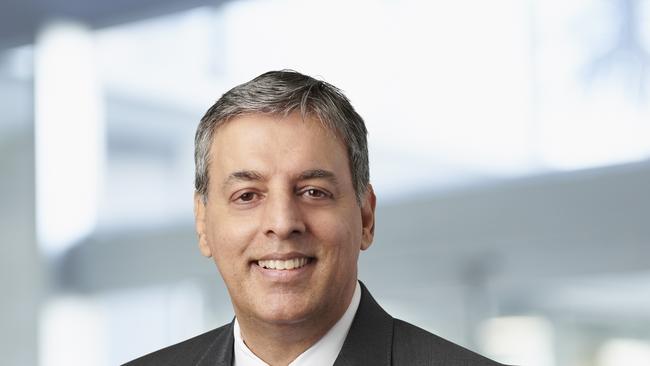Orica looks to import facility to allow ‘flex’ in local manufacturing base after swinging to $174m loss
High gas prices remain a problem for Australian manufacturers, with Orica moving to give itself new import options.

Explosives giant Orica has flagged a more “flexible” approach to its Australian manufacturing operations, as the company looks to build import infrastructure for ammonia at its Kooragang Island facilities in NSW.
Orica said on Thursday it is seeking approval to build a 30,000 tonne ammonia storage tank at Kooragang Island, which it said would provide the “capacity to flex between ammonia manufacture and import depending on market conditions”.
While Orica boss Sanjeev Gandhi said the company had “no intention” of exiting its Australian manufacturing operations, the move sounds a further warning over high Australian gas prices, coming only days after rival explosives maker Incitec Pivot announced the closure of its Gibson Island fertiliser manufacturing facilities when its gas contract expires at the end of 2022.
“Energy costs are still challenging. I still hope that we will find a reasonable solution because I think it’s in everybody’s interest that manufacturing companies like Orica can maintain a strong manufacturing base in Australia,” he said after Orica swung to a big financial loss for the year ended September 30.
Mr Gandhi told analysts the company’s existing gas contracts on Australia’s East Coast extended through until 2026.
The storage tank would also allow Orica to use larger vessels to import and export ammonia, and potentially allow the importation of “green” ammonia to help decarbonise Kooragang’s own output when a market for the product developed, he said.
Soaring gas prices are a global issue for manufacturers, and Orica is already a significant buyer of ammonium nitrate on the global stage to service markets where it does not own manufacturing plants.
The Orica boss told analysts other ammonium nitrate manufacturers had been adding surcharges to deliveries, which the company had been forced to pass on to customers.
But Mr Gandhi said he believed soaring energy prices were temporary.
“But this is not something that will continue forever. Now it’s anybody’s guess when it will normalise, bit it will eventually normalise,” he said.
Orica will pay a final dividend of 16.5c a share after booking an annual net loss of $174m, hit by China’s ban on Australian coal, increased sea freight costs and social unrest in key markets in South America. That compares to a net profit of $82m last year.
Its results were also dragged down by previously flagged impairments worth $480m before tax, as Orica booked yet another write down at its Burrup explosives plant and wrote off $48m in goodwill against its Latin America, Europe, Middle East & Africa explosives business.
Although annual revenue rose slightly, up $71m to $5.68bn, underlying earnings dropped 30 per cent to $426.6m.
Mr Gandhi said the “challenging” year had been hit by fluctuating currency markets, disruptions in coal markets, due to China’s ban on Australian coal, rising freight costs and growing global inflation.
He said the second half of Orica’s fiscal year was stronger than first, however, and flagged an improved performance in the year ahead.
“We expect steady commodity growth in 2022 which will drive stabilised demand for explosives-related products and services, particularly in copper, gold and quarry and construction markets,” he said.
Asian construction markets offer the key to future growth for explosives giant Orica, Mr Gandhi said, as the company resets its strategy after a tough year.
Mr Gandhi said in an interview that the company was focused on growing its quarrying and construction business into Asian markets over the next few years. It is hoping to take advantage of government stimulus packages elsewhere in the world to capitalise on its blasting services in established markets.
Orica’s quarrying and construction business was worth about 16 per cent of its annual revenue last financial year, and more than a quarter of the $1.23bn revenue from its North American business.
“We are obviously a market leader in the US, but we are under-represented in Asia,” he said.
“Asia is expected to be the fastest growing market in quarry and construction. China, India, Southeast Asia are all expected to invest significantly in the Q&C sector.”
Orica shares were down 3.7 per cent at $14.80 in a lower market on Thursday afternoon.


To join the conversation, please log in. Don't have an account? Register
Join the conversation, you are commenting as Logout